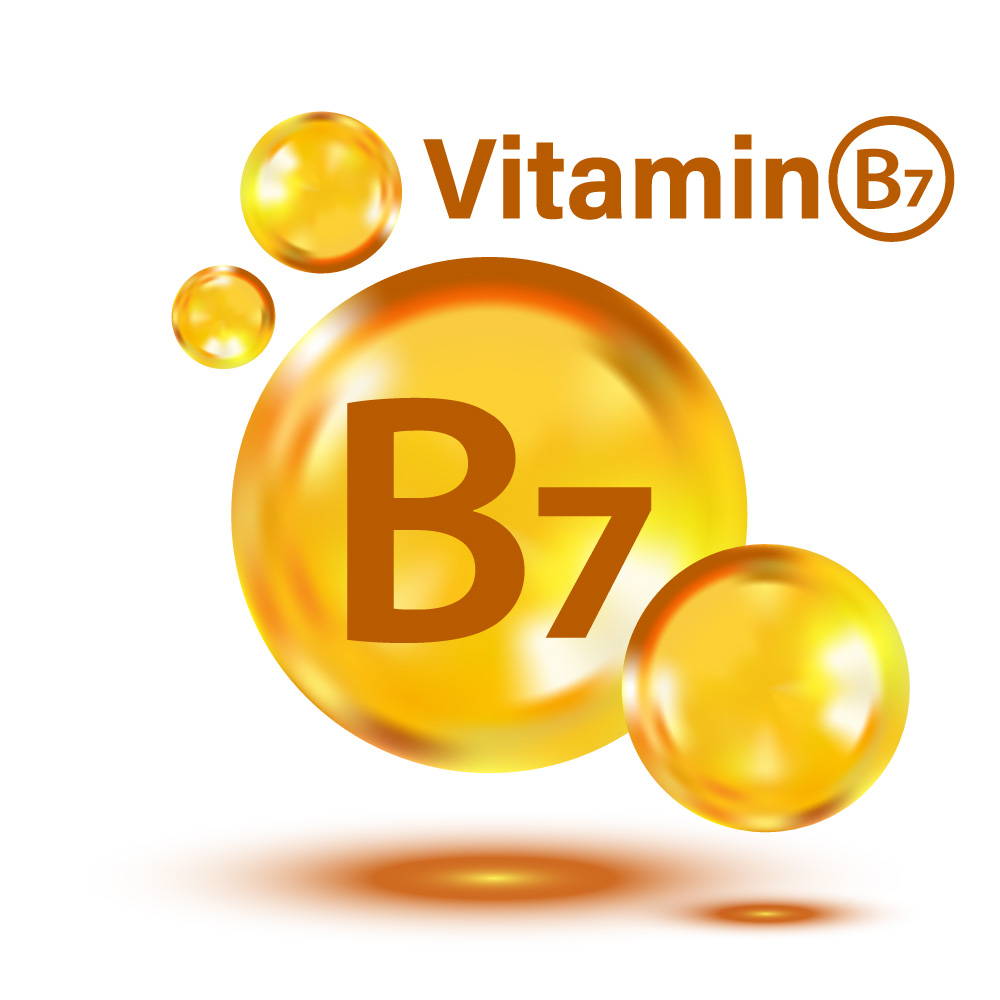SUPPLEMENT - VITAMIN
Explore our effective micro-nutrients and premium ingredients

What is Biotin and what does it do?
How much Biotin do I need?
LifeStage | RecommendedAmount |
Birth to 6 months | 5 mcg |
Infants 7–12 months | 6 mcg |
Children 1–3 years | 8 mcg |
Children 4–8 years | 12 mcg |
Children 9–13 years | 20 mcg |
Teens 14–18 years | 25 mcg |
Adults 19+ years | 30 mcg |
Pregnant teens and women | 30 mcg |
Breastfeeding teens and women | 35 mcg |
What happens if I don’t get enough Biotin?
What are some effects of Biotin on health?
Hair, nail, and skin health
Can Biotin be harmful?
Where can I find out more about Biotin?
References
1. Institute of Medicine. Food and Nutrition Board. Dietary Reference Intakes: Thiamin, Riboflavin, Niacin, Vitamin B6, Folate, Vitamin B12, Pantothenic Acid, Biotin, and Choline. Washington, DC: National Academy Press; 1998.
2. Mock DM. Biotin. In: Ross AC, Caballero B, Cousins RJ, Tucker KL, Ziegler TR, eds. Modern Nutrition in Health and Disease. 11th ed. Baltimore, MD: Lippincott Williams & Wilkins; 2014:390-8.
3. Zempleni J, Wijeratne SSK, Kuroishi T. Biotin. In: Erdman JW, Macdonald IA, Zeisel SH, eds. Present Knowledge in Nutrition. 10th ed. Washington, DC: Wiley-Blackwell; 2012:359-74.
4. Pacheco-Alvarez D, Solórzano-Vargas RS, Del Río AL. Biotin in metabolism and its relationship to human disease. Arch Med Res 2002;33:439-47. [PubMed abstract]
5. Staggs CG, Sealey WM, McCabe BJ, Teague AM, Mock DM. Determination of the biotin content of select foods using accurate and sensitive HPLC/avidin binding. Journal of food composition and analysis: an official publication of the United Nations University, International Network of Food Data Systems 2004;17:767-76. [PubMed abstract]
6. Said HM. Biotin: biochemical, physiological and clinical aspects. Subcell Biochem 2012;56:1-19. [PubMed abstract]
7. Health information data from U.S. National Institutes of Health
Better than others
Nine medical doctors used their research findings to develop Dr’s Grow UP in the biotech lab. The result is a product containing 22 ingredients mixed in the perfect proportions to maximize bone health and height development.
Why Bone Science?
Science-Backed Formulations
Carrying out extensive research and keeping up-to-date with the latest scientific findings is our key to develop superior formulations.
Best Growth Support for Kids & Teenagers
Our products contain essential ingredients for a healthy bone and height development of kids from 10 years and teenagers.
Fighting Aging Effects
We are dedicated to create formulations that delay and restrict the extent of adult’s bone density decrease.
Unmatched Product Quality
Only 100% natural ingredients that contain no soy, no gluten, no GMOs, no maltodextrin, and no artificial flavors, colors, or preservatives.
Product Safety
All of our products are manufactured in the US in an FDA and NSF cGMP registered facility.
